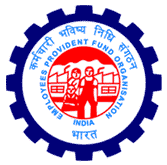
Communications in Afghanistan is under the control of the Ministry of Communications and Information Technology (MCIT). It has rapidly expanded after the Karzai administration was formed in late 2001, and has embarked on wireless companies, internet, radio stations and television channels.
India's telecommunication network is the second largest in the world by number of telephone users with over 1.1 billion subscribers as of December 2023. It has one of the lowest call tariffs in the world enabled by multiple large-scale telecom operators and the ensuant hyper-competition between them. India has the world's second-largest Internet user-base with over 904 million broadband internet subscribers as of December 2023.

Bharat Sanchar Nigam Limited(abbreviated as BSNL) (India Communications Corporation Limited) is an Indian central public sector undertaking under the ownership of Department of Telecommunications, which is part of the Ministry of Communications, Government of India with its headquarters in New Delhi, India. The central public sector undertaking was established on 1 October 2000 by the Government of India. Its highest official is designated as Chairperson and Managing Director who is a central civil service group 'A' gazetted officer from Indian Communication Finance Service cadre or central engineering service group 'A' gazetted officer from Indian Telecommunication Service cadre. It provides mobile voice and internet services through its nationwide telecommunications network across India. It is the largest government-owned-wireless telecommunications service provider in India.

The Employees' Provident Fund Organisation (EPFO) is one of the two main social security organization under the Government of India's Ministry of Labour and Employment and is responsible for regulation and management of provident funds in India, the other being Employees' State Insurance. The EPFO administers the retirement plan for employees in India, which comprises the mandatory provident fund, a basic pension scheme and a disability/death insurance scheme. It also manages social security agreements with other countries. International workers are covered under EPFO plans in countries where bilateral agreements have been signed. As of May 2021, 19 such agreements are in place. The EPFO's top decision-making body is the Central Board of Trustees (CBT), a statutory body established by the Employees' Provident Fund and Miscellaneous Provisions (EPF&MP) Act, 1952. As of 2021, more than ₹15.6 lakh crore are under EPFO management.
The Indian Railway Service of Signal Engineers (IRSSE) is a central engineering services group A cadre of the Indian railways. The officers of this service are responsible for managing the Signal and Telecommunications Engineering Organization of the Indian Railways.
The Indian Railway Accounts Service is one of the Group A Central Civil Service of the Government of India. The civil servants under this Service are responsible for the Accounts and Finance Management of the Indian Railways. About 25–30 IRAS officers are recruited every year through Civil Services Examination conducted by Union Public Service Commission. Currently, the IRAS Cadre has a strength of about 800 officers.

The Department of Telecommunications, abbreviated to DoT, is a department of the Ministry of Communications of the executive branch of the Government of India.
The Ministry of Posts and Telecommunications is the government ministry that governs the postal system and the telecommunications systems of Cambodia. The ministry maintains offices in Phnom Penh.

The Ministry of Road Transport and Highways (MoRTH) is a ministry of the Government of India, that is the apex body for formulation and administration of the rules, regulations and laws relating to road transport, transport research and in also to increase the mobility and efficiency of the road transport system in India. Through its officers of Central Engineering Services (Roads) cadre it is responsible for the development of National Highways of the country.
Central Secretariat Service is the administrative civil service under Group A and Group B of the Central Civil Services of the executive branch of the Government of India. They are governed by Central Secretariat Service Rules of 1962, which has been issued under the powers of Article 309 of the Constitution of India. The service members work under restrictions and rules of Central Civil Services (Conduct) Rules.
The Indian Telecommunication Service, widely known as ITS, and earlier known as Telegraph Engineering Service Class I is one of the Central Civil Services under Group 'A' of the executive branch of the Government of India. The appointment to this service is done through Combined Engineering Services Exam held every year by Union Public Service Commission (UPSC) of India. The service was created to meet the techno managerial needs of the government in areas related to telecommunications. The Department of Telecommunications (DoT) had been managed for years by the officers of this permanent cadre, called the Indian Telecommunications Service (ITS). The officers of ITS work under restrictions and rules of Central Civil Services (Conduct) rules.
The Communications Authority of Kenya (CA) is the independent regulatory agency for the ICT industry in Kenya with responsibilities in telecommunications, e-commerce, broadcasting,cyber security, and postal/courier services. The CA is also responsible for managing the country's numbering and frequency spectrum resources, administering the Universal Service Fund (USF) as well as safeguarding the interests of users of ICT services.

Indian Defence Accounts Service (IDAS) is a Central Group 'A' Civil Service of the Republic of India established to provide Financial Advice, Payment, Accounts and Audit services to the Defence Services i.e. Indian Armed Forces and other allied organisations viz. Defence Public Sector Undertakings, Military Engineer Services, Border Roads Organisation, Defence Research and Development Organisation etc.
Telecom Enforcement Resource and Monitoring (TERM), formerly known as Vigilance Telecom Monitoring (VTM), is the vigilance and monitoring wing of the Indian Department of Telecommunications (DoT). TERM is made up of 34 Cells in India's 22 telecom circles and 10 large telecom districts, each headed by a Senior Administrative Grade (SAG) level officer, termed as Deputy Director General (DDG). The main functions of TERM Cells are vigilance, monitoring and security of the network. Apart from this, TERM Cells also operate the Central Monitoring System (CMS), a clandestine mass electronic surveillance program, and carry out other functions. The TERM Cells function as the subordinate offices of the DoT in the field. These Cells represent the Telegraph Authority and the Licensor.
The Indian Radio Regulatory Service (IRRS) is one of the cadre of central government recruit-engineers of the Wireless Planning & Coordination Wing (WPC) and Wireless Monitoring Organisation (WMO), composed of a cadre of central government recruit engineers Group 'A' officers and Group 'B' officers (Jr. Wireless Officer) of the WPC and WMO. There are a total of 22 Wireless Monitoring Stations, 5 International Monitoring Stations and 1 International Satellite Monitoring Earth Station in India, The functions of the service are the allocation of spectrum licenses, ensuring an interference free spectrum to wireless users, conducting GMDSS and RTR (Aero) examination, SACFA clearances to Telecom service Providers, ensuring adherence to international standards and cooperation with the International Telecommunication Union (ITU). The Government of India established the service by a gazette notification on 16 July 2013. The Wireless Adviser to the Government of India is the highest officer in the service's hierarchy and reports to the Member (Technology) of Telecom Commission of India under the Department of Telecommunications.
The Central Civil Services (CCS) encompass the various Civil Services of India that are exclusively under the jurisdiction of the Government of India. This is in contrast to the All India Services, which are common to both the central and state governments, or the state civil services, which fall under the purview of individual states.

Ministry of Communications is a Central ministry under the Government of India responsible for telecommunications and postal service. It was carved out of Ministry of Communications and Information Technology on 19 July 2016.
The Indian Statistical Service is a civil service under Group A of the Central Civil Services of the executive branch of the Government of India. ISS is a civil service with high degree of proficiency in Statistical methods and applications. With the main mandate of producing quality Official Statistics with better methods and techniques, provide solutions to the data and information needs and interpretation and analysis of statistics, a majority portion of the probationary training programme is to be devoted to acquiring of technical knowledge in the field of official statistics, economics, financial statistics, survey methodology and social etc. The posts are recruited through UPSC examination. The minimum eligibility criterion is Bachelor's degree with Statistics or Mathematical Statistics or Applied Statistics as one of the subject.

Provincial Civil Service / Provincial Civil Service , often abbreviated to as PCS, is the administrative civil service of the Government of Uttar Pradesh comprising Group A and Group B posts. It is also the feeder service for Indian Administrative Service in the state.

Provincial Finance and Accounts Service / Provincial Civil Service (Finance), often abbreviated to as PFAS or PCS (Finance) is one of the premier Group A state civil service under Executive branch of Government of Uttar Pradesh responsible for Finance Administration of the state.






